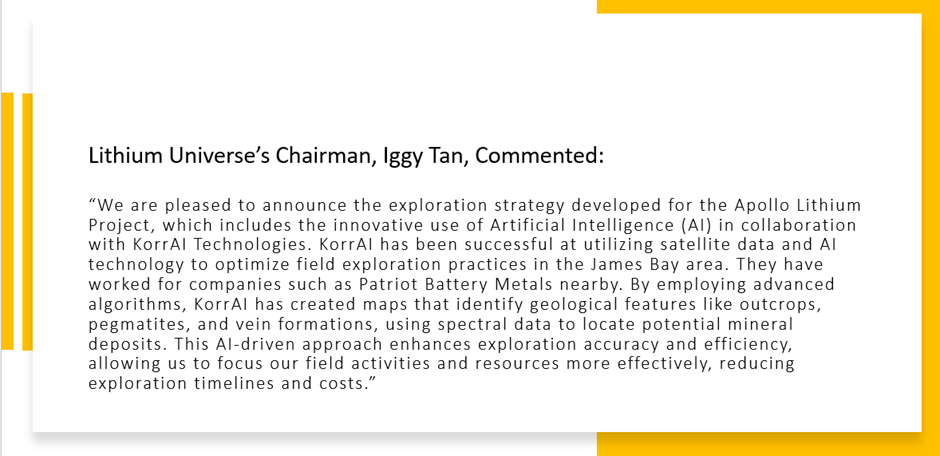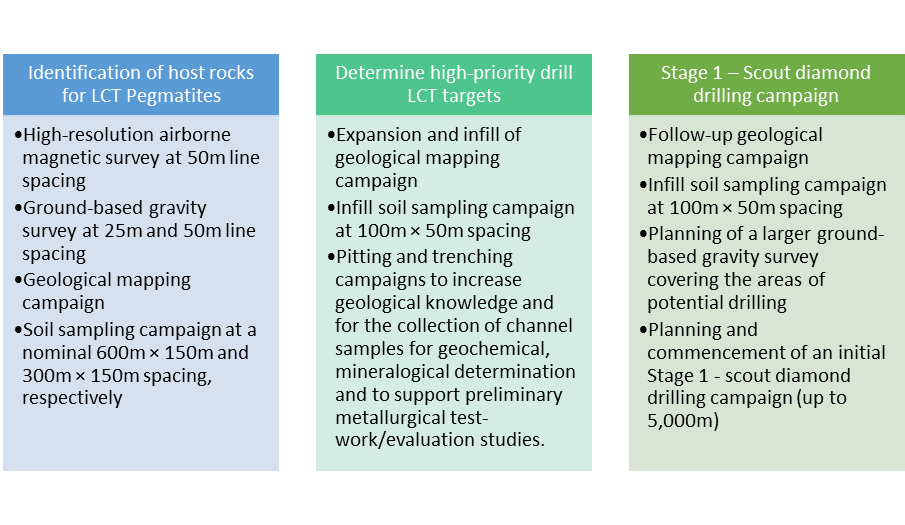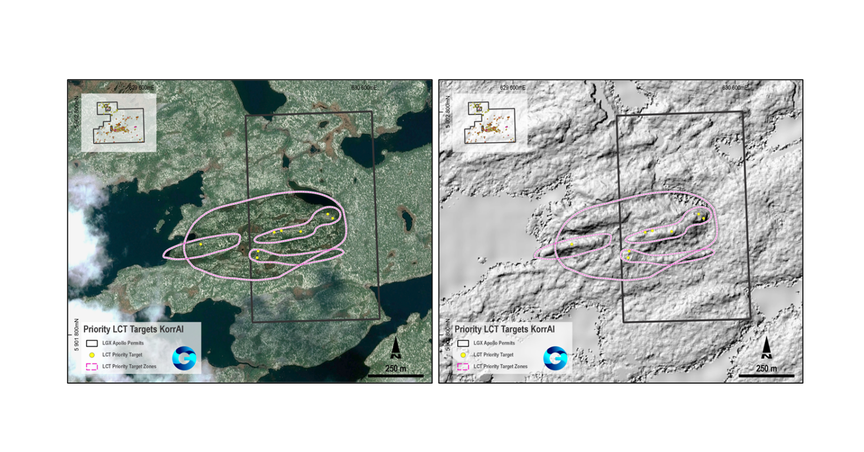Highlights
- Lithium Universe is using AI to develop the exploration strategy for its Apollo lithium project.
- The newly ASX-listed company is working with KorrAI Technologies.
- AI technology is expected to optimise the time and cost of the project while improving field exploration practices.
- To date, 28 priority targets have been located at the project for sampling and field mapping.
Lithium Universe Limited (ASX: LU7) has kicked off work on its Canada’s James Bay lithium project. In an exciting update, the newly ASX-listed company announced its plans to deploy AI (artificial intelligence) technology for the development of its exploration strategy for the Apollo Lithium Project.
The company is working in collaboration with Canada-based company KorrAI Technologies Limited.
Triggered by the update, Lithium Universe share price jumped by 3.70% to trade at AU$0.056 apiece with a market capitalisation of over AU$33 million at the time of writing on 17 August 2023.

AI fast-tracks exploration activities
KorrAI’s technology and expertise use satellite data and AI to improve field exploration activities, optimise cost and time while enhancing exploration outcomes by employing data-driven decisions. The key approach of KorrAI is to use AI to analyse and process satellite images and data.
The advanced algorithms provide maps that highlight various geological features such as vein formations, pegmatites and outcrops.
Spectral data used helps in identifying the areas with a high probability of having valuable mineral deposits.
AI highlights the areas with high potential and helps the field team allocate resources effectively, saving cost and time of exploration. Since the window of exploration is shorter due to the winter season, AI proves to be more useful.
AI is expected to help LU7 in speeding up the exploration activities, which would have traditionally taken approximately a year.
LU7 identifies priority targets at Apollo
LU7 has undertaken a study on Apollo to identify Lithium-Caesium-Tantalum minerals (LCT) bearing pegmatites by employing technologies such as ground-based geophysics, airborne and remote sensing along with AI.
The program generated 448 priority targets for the project. For field mapping and sampling, the targets were narrowed down to 28 areas.
Further development of the project strategy
The further develop the project strategy, the company plans to use AI along with staged ground-truthing activities and airborne and ground-based geophysics techniques.
LU7 has shared three phases of expedited exploration strategy at Apollo.

Data source: Company update




